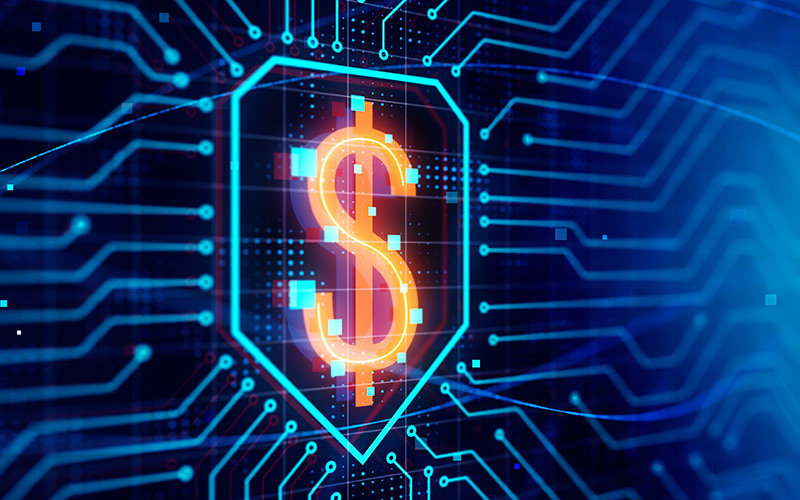
Cryptocurrency — a form of digital currency — can transform money and payments as we know it, predicts Cal State Fullerton cybersecurity expert Mikhail Gofman.
“The future of cryptocurrencies is more of an economic question rather than a technical one,” said Gofman, associate professor of computer science and director of CSUF’s Center for Cybersecurity. “Many users believe that the future for cryptocurrencies is ultimately bright because their usage is growing. I would say that cryptocurrencies will not go away any time soon due to their benefits.”
Preparing professionals in cryptocurrency and blockchain technology also is in demand, Gofman added. (See sidebar) As a result of this upward trend, the College of Engineering and Computer Science is offering a new course to prepare students in this technological field.
What is cryptocurrency?
Cryptocurrency is a type of internet-based currency that relies on blockchain technology for securely conducting financial transactions.
What is a blockchain?
Blockchain technology is the clockwork that makes cryptocurrencies tick. It’s a virtual chain that represents a history of all transactions ever made since the cryptocurrency system was launched. All users have an identical copy of the chain, called the ledger, and each link in the chain is known as a block. Each block in the chain represents a set of verified transactions and also contains a unique code that was computed based on all the previous links. If someone tries to commit fraud by altering the transaction history by modifying a block in a chain, the change will cascade to all the following blocks and will be easily detectable.
How does a blockchain work?
When a transaction is requested, it is broadcasted to a community of tech-savvy users known as miners. Their job is to verify transactions and anybody can join — including you! The miner who verifies first gets cryptocurrency added to their wallet. The system is designed to make it very difficult to commit fraud and other acts of cheating. To cheat the system and jeopardize the integrity of the chain would require significant computing power that is beyond the practical power of most, if not all, hackers.
What are some of the advantages?
One of the biggest advantages of cryptocurrency is that it decentralizes the process of payments and transaction processing. When you make a payment, your payment is processed by the miners rather than a centralized bank, allowing users to make payments out of sight of the financial sector and the government. Another attractive feature is the privacy and anonymity that it provides since each user gets a digital wallet to send and receive payments, and the wallet contains no associated personally identifiable information.
What are some of the risks?
There are many risks and one of them is theft, which can be accomplished by using various methods, including phishing, scamming and hacking. There’s also a new wave of malware known as cryptojacking, where codes are embedded into web pages that make your computer mine bitcoins for the hackers when you visit the affected website. People can protect themselves by learning to recognize online phishing scams and protecting your system with antivirus and firewall software to prevent malware from stealing bitcoins from your wallet.